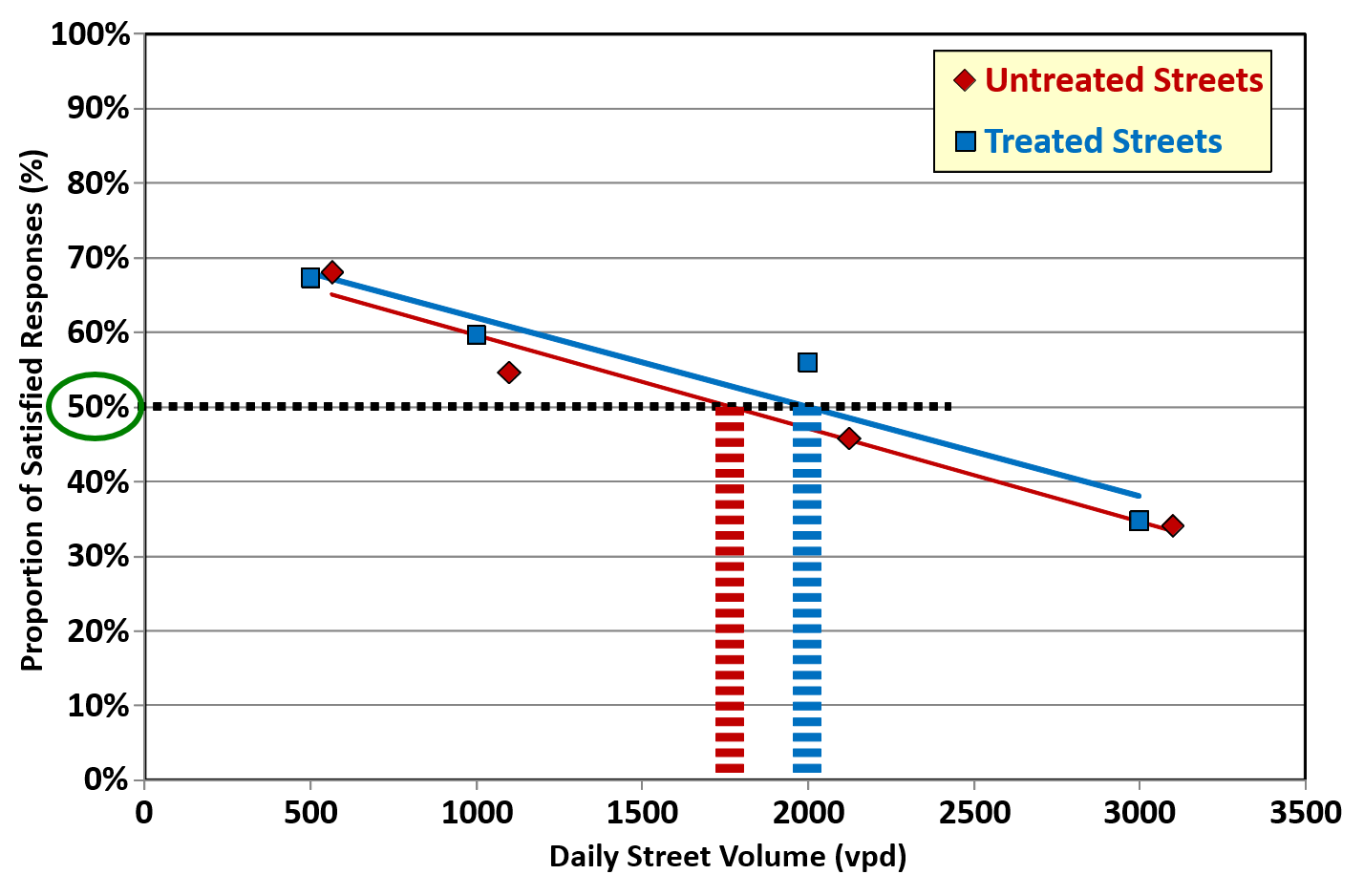Assessing the environmental capacity of local residential streets
Where presented / published:
92nd Transportation Research Board (TRB) Annual Meeting, Washington DC, USA. Jan 2013
The inherent conflict between the residential amenity and traffic access functions of roads causes debate on what constitutes a true "local" street. The concept of ‘environmental capacity' was developed to identify a suitable maximum traffic volume on such local streets. In separate research in the 1960s-1970s, both Buchanan and Appleyard settled on broad-brush traffic thresholds of 2,000-3,000 vehicles/day. Since then, other research has relied heavily on these original findings; this paper investigates that presumption in the present day.
A residents' survey was applied to four conventional "local" streets with varying traffic volumes in Christchurch, New Zealand. Residents living on those streets with higher volumes felt that their streets were busier, noisier and less safe. There was also an increasing trend for residents along higher volume streets to have their houses turned away from the street and they tended to have less personal involvement and/or knowledge of their neighbours. A more appropriate environmental capacity appeared to be around 1,500-2,000 vehicles/day.
A subsequent study looked at further Christchurch streets, this time with treatments such as street calming and tree plantings, aiming to see whether the street treatments affected the perceived environmental capacity. As well as reinforcing the previous conclusions, a higher environmental capacity of around 2,000 vehicles/day was found for the surveyed streets. This suggests that appropriate street treatments can increase the environmental capacity, which has implications for local councils who want to maintain road traffic carrying capabilities without having unsatisfied residents.
While, working at Canterbury University, Glen Koorey co-authored this paper with UC Masters students Andrew Leckie and Rhys Chesterman (ex ViaStrada) and presented it at the 2013 Transportation Research Board (TRB) Annual Meeting in Washington DC.
Link to conference presentation




